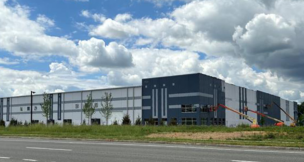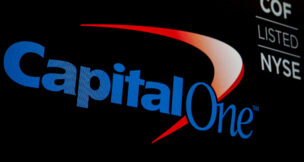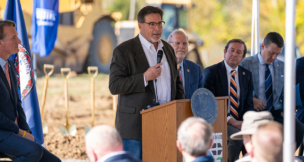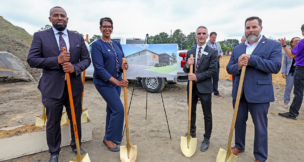Business Facilities ranks Virginia No. 1 again for custom workforce training
The Virginia Talent Accelerator Program has been ranked first in Business Facilities’ ranking of states’ customized workforce training.
Acoustical Sheetmetal Co. to invest $46M in Virginia Beach expansion
Virginia Beach-based Acoustical Sheetmetal Co. will invest $45.8 million to expand its operations and create 350 jobs.
Technomics to add 248 jobs in Arlington expansion
Technomics will expand its Arlington County operations, adding 25,200 square feet of office space and creating 248 jobs.
Nightingale ice cream expansion to add 166 jobs
Nightingale Ice Cream Sandwiches is investing $5.8 million to move to a new facility in Richmond and expects to create 166 jobs.
Iridium to invest $13M to relocate Tysons HQ, add 117 jobs
Tysons-based global satellite communications company Iridium Communications will invest more than $13 million to expand its headquarters in Fairfax County and create 117 jobs, Gov. Glenn Youngkin announced Tuesday.
Sumitomo Drive Technologies to invest $9.3M to automate Chesapeake warehouse
The Virginia Economic Development Partnership announced last week that global power transmission manufacturer Sumitomo Drive Technologies will invest $9.3 million to automate a warehouse and distribution center in Chesapeake.
QualiChem to invest $9M in Salem expansion
Salem-based metalworking fluids manufacturer QualiChem will invest $9 million to expand its operations with a new 48,550 square-foot facility and will create 12 jobs, according to a May 13 announcement.
Amazon fulfillment center in Goochland to create 1,000+ jobs
Gov. Glenn Youngkin participated Wednesday in a ceremonial groundbreaking for Amazon.com's 3.1 million-square-foot robotics fulfillment center in Goochland County, which is expected to create more than 1,000 full-time and part-time jobs.
Virginia launches accelerator for $250M+ economic development projects
Virginia’s Made in Virginia Accelerator program announced May 8 accelerates large-scale projects with a $250M+ capital investment and 500+ jobs, offering expedited permitting and coordination among state agencies.
Lynchburg transformer manufacturer to add 300 jobs, invest $35M
Delta Star, a manufacturer of power transformers and mobile transformer substations for the electrical grid, is investing $35 million to expand its Lynchburg operation and expects to create 300 jobs, Gov. Glenn Youngkin announced Thursday. The Lynchburg facility is set to expand by 80,000 square feet. Most of the jobs created will be in manufacturing, […]
Va. looks to produce more ‘middle-skilled’ workers
When Tennessee-based Microporous officials visited Virginia in 2022 to scout locations for a new plant, Danville leaders took them to local public schools. That might seem like an unusual field trip, but choosing the right site for a manufacturing operation is not as simple as picking a plot of land anymore, says Julie Brown, vice […]
New $230M chocolate factory coming to Frederick County
Frederick County may not have won the golden ticket to Willy Wonka’s chocolate factory, but it may have snagged something even better — a chocolate facility of its own. Gov. Glenn Youngkin announced Friday that Wisconsin chocolate manufacturer Clasen Quality Chocolate will invest $230 million to build a new production facility in Frederick County and […]





















